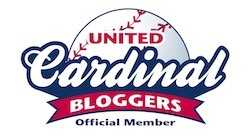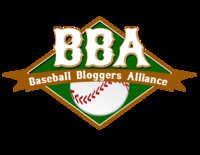Thank you, Branch Rickey, for giving the Negro Leagues a chance
By COREY NOLES
Baseball has always been a game that reflects the norms of the society in which we live. In no time has that been more true than in the first half of the 20th century.
As I began working on the article for the front page of this Weekend's Edition of The Daily Statesman, I learned just how ugly baseball once was.
I've long known of the Negro League teams of the first half of the 1900s, but my knowledge was very limited. It still is.
However, my appreciation for both the struggles and athleticism of those oft-forgotten athletes has grown immensely.
Some stories want to be told. You may have to be a writer to understand that statement, but maybe not. This story I'm referring to was one of those tales.
I wasn't looking for this story when it found me--and it literally did find me.
I was contacted by a gentleman researching a UFO sighting near Dexter who asked me to look in our archives for April 1941. I always try to oblige these requests when I have a few minutes because I have a real fondness for history.
This time, the first book I opened and the first page I opened it to, had a picture of Booker McDaniels on the front page proclaiming that the Kansas City Monarchs would be playing in Dexter "next Sunday afternoon." The story exploded from there.
With every interview and every newspaper, the story continued to unfold--growing more interesting as it spread.
In a hurry, a UFO "investigation" led to tales of Dizzy and Daffy Dean, Satchel Paige and Willie Mays. The story has virtually consumed me since that first moment.
I've watched movies, homemade films, pilfered through books and meticulously carved through years of newspaper microfilm.
With everything I've discovered, I've learned that the fact that these men weren't treated like other baseball players is a true tragedy. Their talent and good spirit brightened the days of countless small-town Americans during barnstorming tours like the one I just wrote about.
The idea that they were somehow inferior to white players is a sad tale. Just like in "white baseball," there were some players who may not have been worthy of the big leagues, but many were. Satchel Paige, Buck O'Neil and Cool Papa Bell, all honored posthumously, still don't receive the credit they should for the sacrifices they made in honor of this nation's greatest game.
Sadly, as time passes their contributions will slip even farther from the forefront of our minds.
At the time these games were played, specifically the barnstorming games, there were no beat writers following these black teams. As a result, their written histories are extremely limited. The records I discovered of these games in the Dexter area are likely the only known records of those games in existence, according to Dr. Raymond Doswell at the Negro Leagues Baseball Museum in Kansas City.
If you've never visited the museum--do it. Make it part of your summer plans. The museum needs the support and the great players from a generation almost gone deserve your attention.
It's a part of baseball history we should all take time to appreciate.
Their tales are timeless and their stories amazing. It's impossible to have a true understanding of this wonderful game without an appreciation for those who played on the wrong side of segregation.
So, thank you, Branch Rickey, for having the courage and foresight to bring this game together the way it should have been in the beginning.
On an unrelated note, I still haven't found the UFO story.
Respond to this blog
Posting a comment requires free registration:
- If you already have an account, follow this link to login
- Otherwise, follow this link to register




